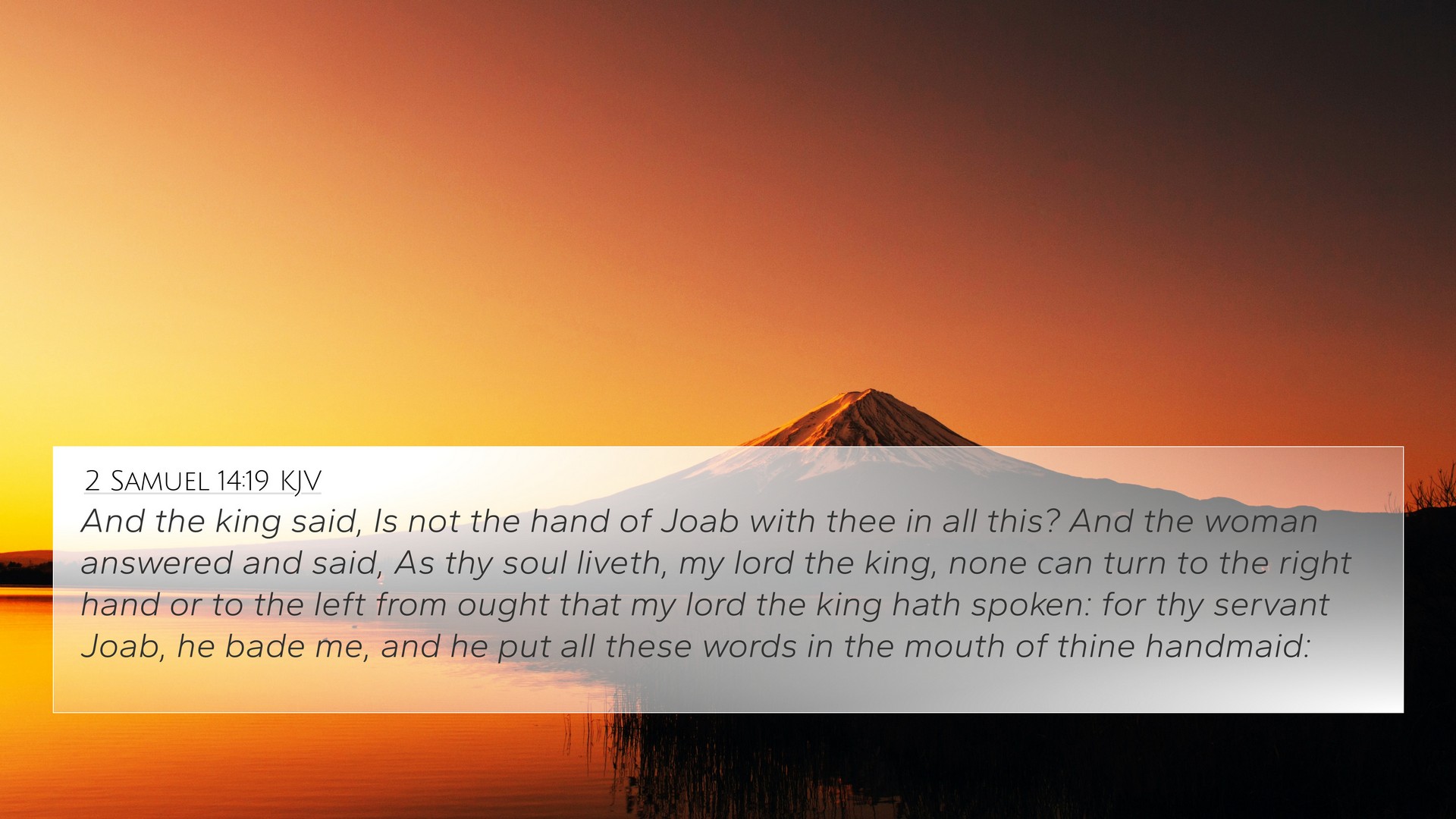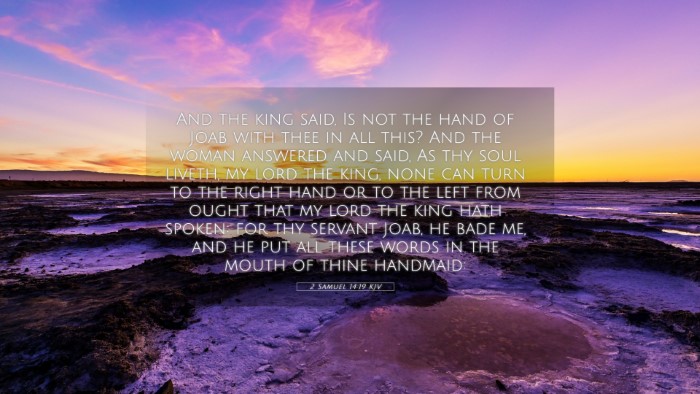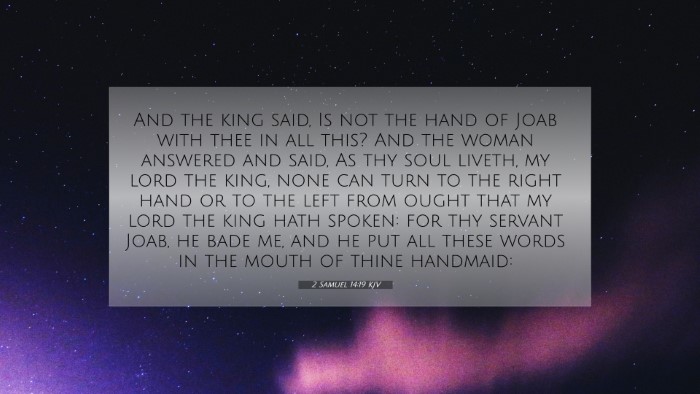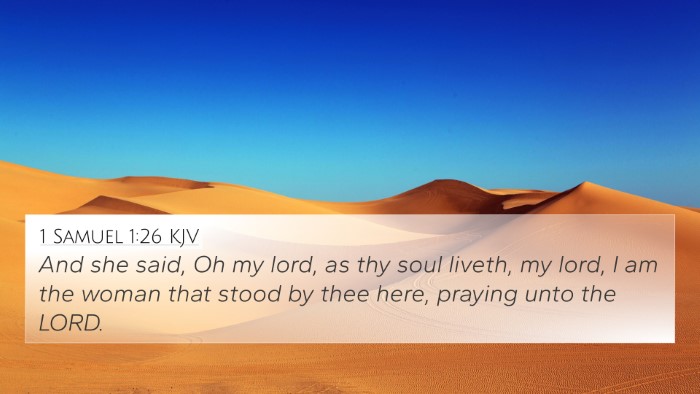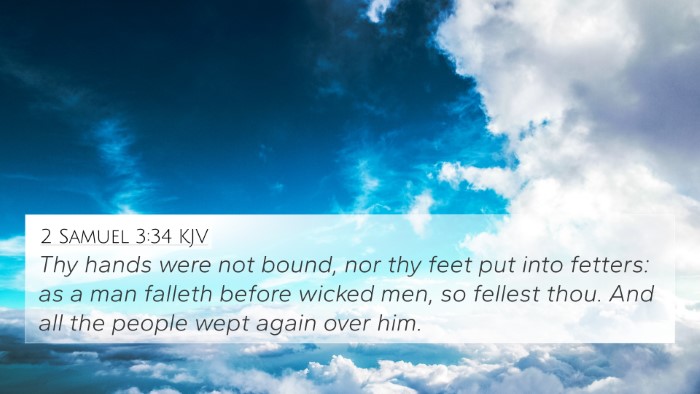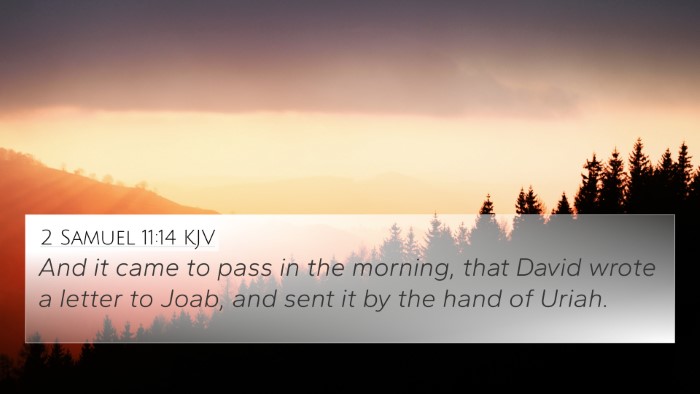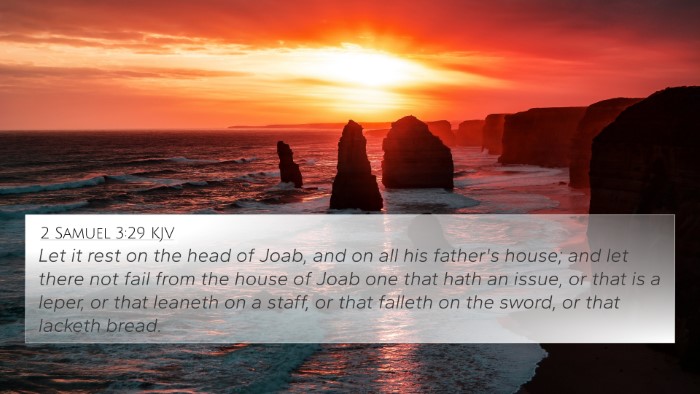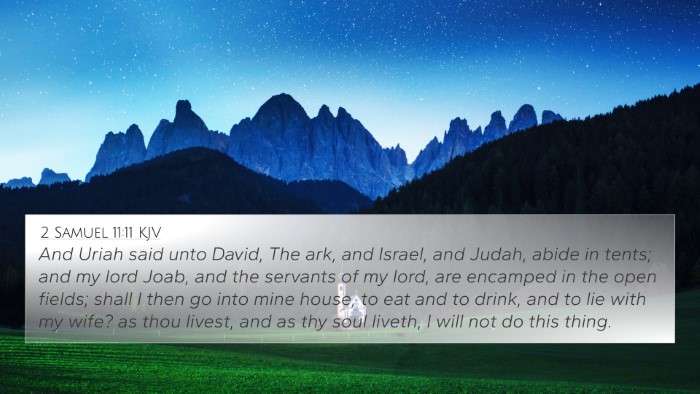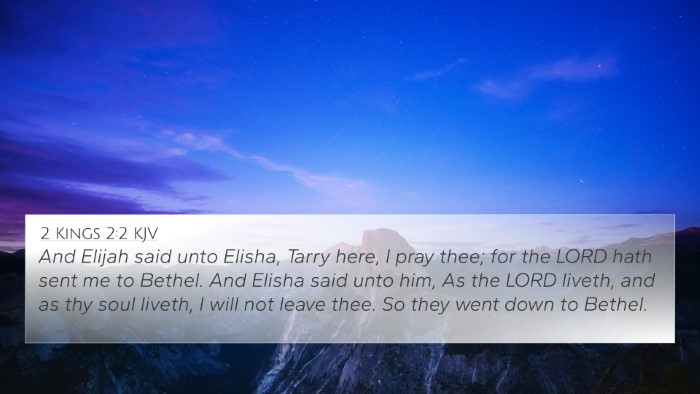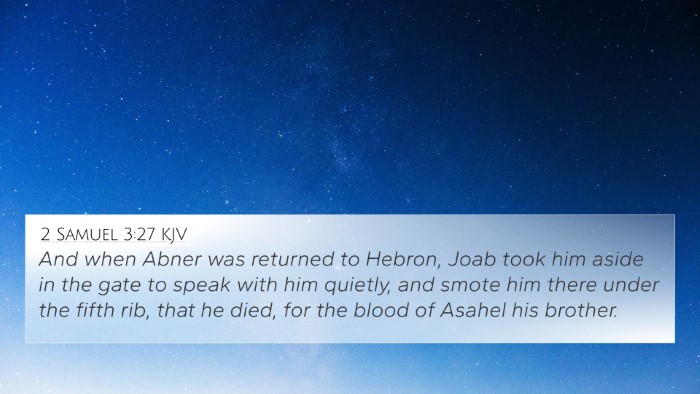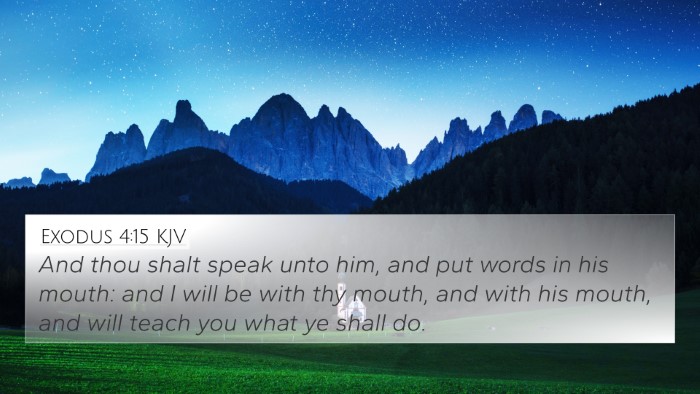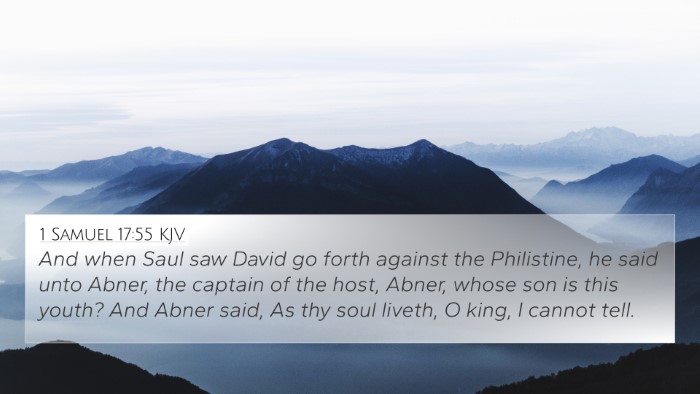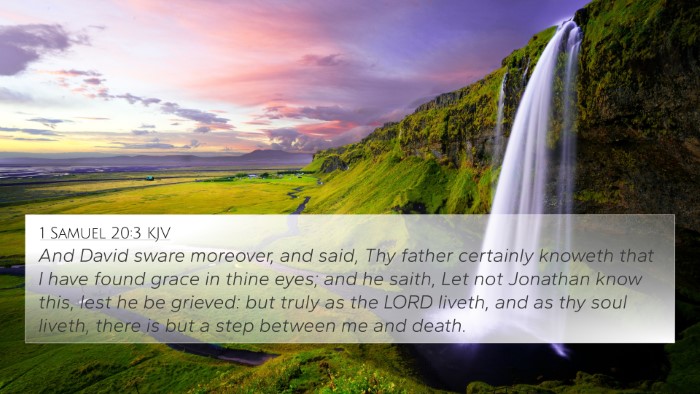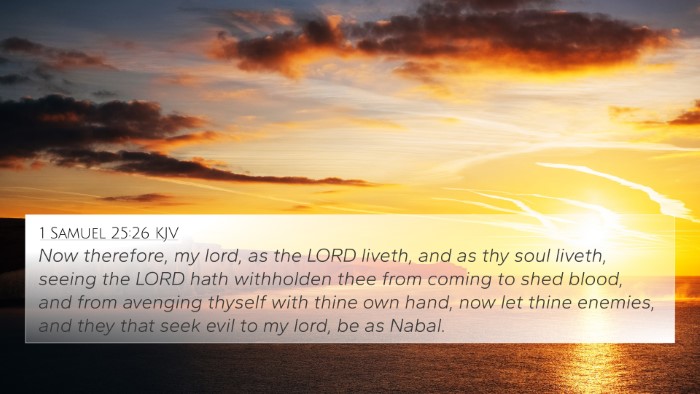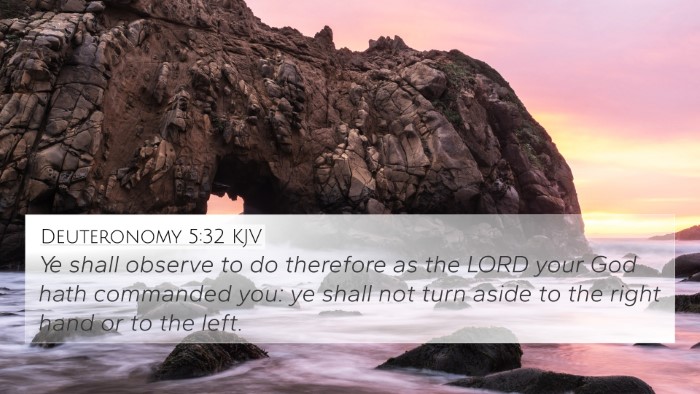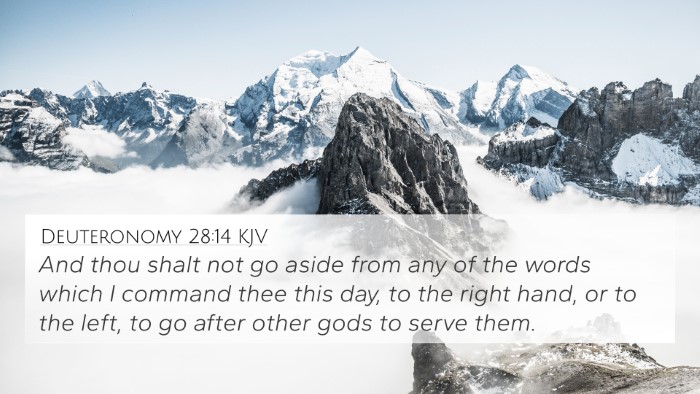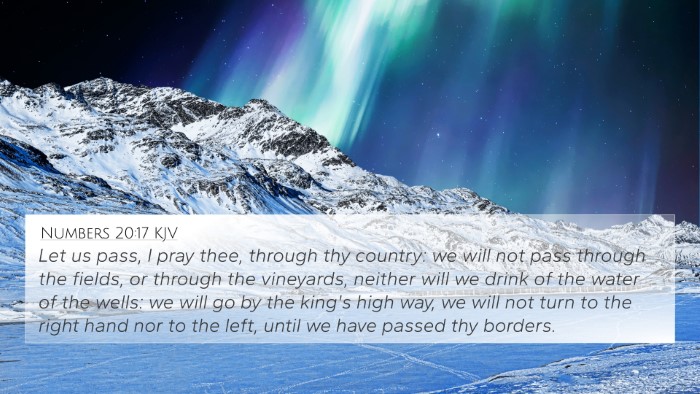Understanding 2 Samuel 14:19
Bible Verse: 2 Samuel 14:19
"And the king said, Is not the hand of Joab with thee in all this? And the woman answered and said, As thy soul liveth, my lord the king, none can turn to the right hand or to the left from aught that my lord the king hath spoken: for thy servant Joab, he bade me, and he put all these words in the mouth of thy handmaid."
Verse Summary
This verse features a conversation between King David and a woman from Tekoa, who is speaking on behalf of Joab, David's military commander. Joab has orchestrated this encounter to persuade David to reconcile with his estranged son, Absalom. The woman affirms Joab’s influence and emphasizes the authority of the king’s words.
Meaning and Interpretation
The context of this verse revolves around themes of reconciliation, manipulation, and royal authority. The woman's reply indicates her awareness of the political machinations behind her words and demonstrates the careful navigation of truth and royal favor. Below, we explore deeper meanings derived from public domain commentaries:
Insights from Commentaries
-
Matthew Henry:
Henry notes the astuteness of David recognizing Joab's involvement, suggesting that even in moments of emotional appeal, the king must discern the motives behind the counsel presented to him. This interaction highlights the intricate relationship between authority and persuasion.
-
Albert Barnes:
Barnes emphasizes the craftiness of Joab's strategy, asserting that the woman’s presentation was designed to elicit compassion and a sense of duty from David. The verse illustrates the artfulness of political discourse that often shapes royal decisions.
-
Adam Clarke:
Clarke focuses on the nature of the plea made to David, indicating that Joab’s invention through the woman served a greater purpose of reconciliation in the royal family. He argues that strategy was necessary in a context rife with conflict and emotional turmoil.
Significance of Joab's Role
Joab's involvement reflects the complexities of leadership. His actions can be seen as both manipulative and necessary, showcasing the blurry lines between loyalty and self-interest in royal courts. This instance serves as a reminder of the multifaceted nature of human relationships, especially among those in power.
Cross-References and Related Verses
Understanding the connections between various Bible verses can enhance our interpretation of 2 Samuel 14:19. Below are notable cross-references:
- 2 Samuel 14:1-3 - Joab’s initial decision to send for the woman of Tekoa.
- 2 Samuel 13:37-39 - The backstory of Absalom’s exile and David's grief.
- 2 Samuel 12:1-7 - David’s own recognition of a story that reveals truth, paralleling the woman's approach.
- 2 Samuel 19:4-5 - The reconciliation between David and Absalom, culminating in the themes first introduced in this interaction.
- Proverbs 12:15 - The wisdom literature reflecting on the importance of heeding counsel.
- Luke 14:31-32 - The New Testament parallel on counting the cost in leadership and decision-making.
- Matthew 5:23-24 - The call to reconciliation similar to David's potential choice to reunite with Absalom.
- 1 Chronicles 21:1-7 - Joab's continuing significance in the narrative of David’s reign.
- Matthew 5:9 - Blessed are the peacemakers, a theme resonant in David's potential efforts toward reconciliation.
- Romans 12:18 - Similar exhortation toward living peaceably with all men, applicable to the situation at hand.
Thematic Connections in Scripture
This verse illustrates key themes present throughout the Bible, such as:
- Reconciliation: The ongoing narrative of familial restoration seen in both the Old and New Testaments.
- Authority and Influence: The dynamic of power expressed through Joab’s manipulation of the situation.
- Manipulation vs. Truth: The tension between genuine counsel and strategic maneuvering.
- Leadership Challenges: The complexities leaders face, including emotional and political pressures.
Tools for Bible Cross-Referencing
For those looking to engage in deeper study and find interconnections among scripture, the following tools are recommended:
- Bible Concordance: A comprehensive listing of words and phrases that can guide searches for related verses.
- Bible Cross-reference Guide: A structured way to find links and themes across different books and passages.
- Bible Reference Resources: Essential for expanding understanding through thematic study.
- Cross-Reference Bible Study Methods: Various approaches to integrating insights from multiple verses.
- How to Use Bible Cross-references: Learning to apply scripture in tandem for deeper meaning.
Conclusion
2 Samuel 14:19 serves as a pivotal moment in David’s narrative, illustrating the complexities of royal interactions, and the necessity of discerning counsel amidst emotional and political strife. By exploring this verse through cross-referencing and thematic study, readers can gain a more profound understanding of the Biblical text and its implications for reconciliation, authority, and truth.
